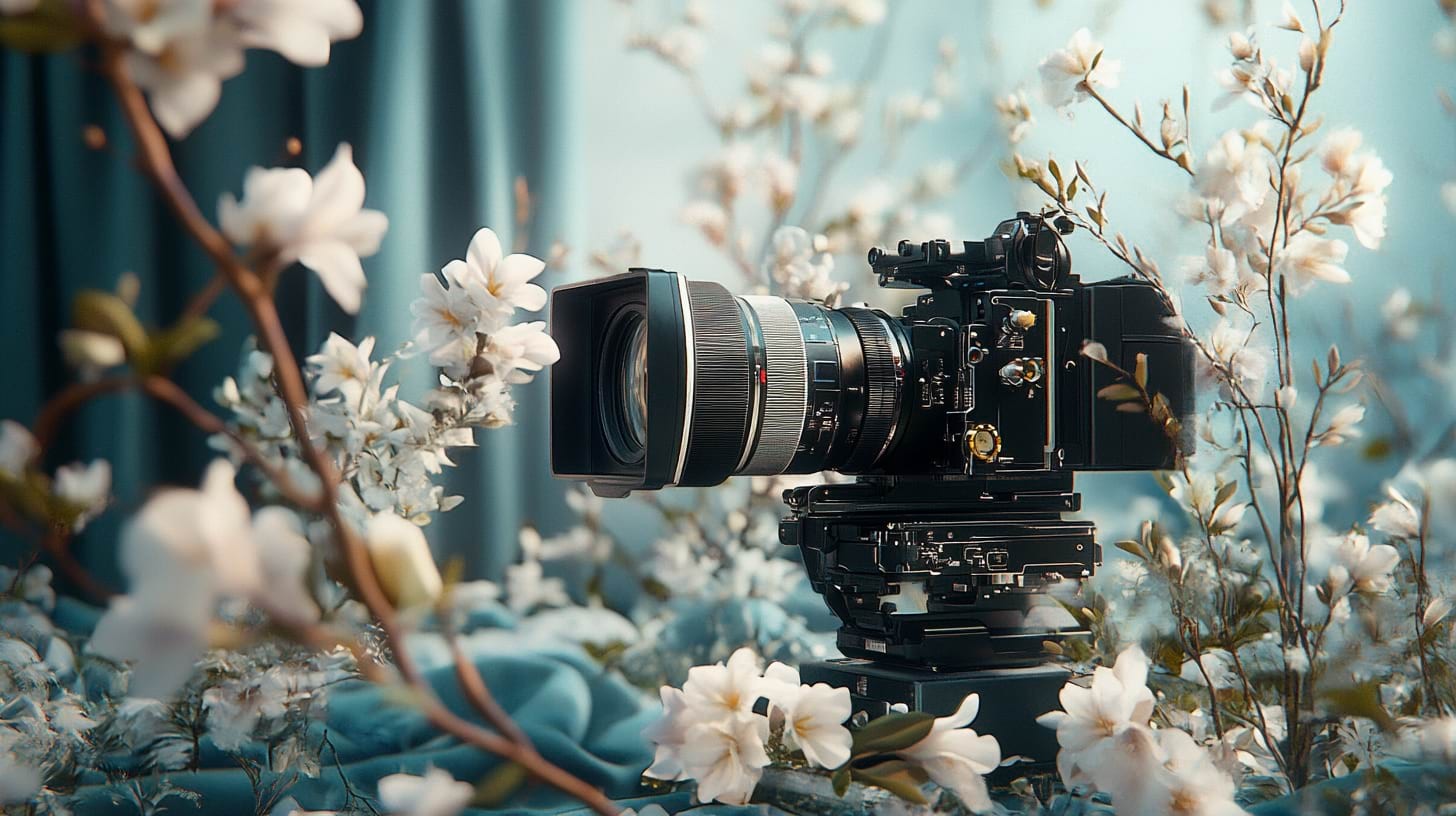The Future of AI in Video Production: Innovations and Impacts
Discover how AI is making ways in video production. From the initial stages to final tweaks, explore the latest AI technologies and what they do for better filmmaking.


Artificial intelligence always finds new ways to amaze film and content makers. New technologies appear, workflows change, and people get more (and easier) options to use their creative minds.
AI goes big, whether it’s a draft-making process or the editing. We know that it will drive the production forward… but how far can it go?
What AI does for today’s video production, and how will it shape the future? Delve into the article to find out!
🤖 Current State of AI in Video Production
From now on, it's safe to say that AI isn't just a concept or a buzzword that people throw around to sound smart or trendy. The technology has diverse applications across different parts of filmmaking. We have AI for visual effects, automated clipping, smart video creation… the list can keep going.
AI in video editing software can organize clips, detect scene changes, or even recommend next techniques based on the cut you already have.
Furthermore, thanks to machine learning in video creation, filmmakers can now produce inspiring stories without extra work. It would take a human editor hours, if not days, to create something like a movie trailer or a music video.
For businesses and other organizations, it signifies cost savings.
This is what automation in video production brings to the table: speed, efficiency, and quality. No need to do everything by yourself—let AI cover your back. But what's next?

🎬 AI in Pre-Production and Planning
If you think video production only applies to editing, think again. The tech isn't just for the final curtain call!
Algorithms can evaluate the draft’s direction, foster video ideas, suggest plot improvements, and create shot lists. Those provide a solid foundation for writers to build upon and help people with writer's block to overcome their creative slump.
Its appliance in video content don’t stop on that. Storyboards are another area. This technology allows filmmakers to visualize their projects more accurately and apply needed alterations before actual shooting begins.
Artificial intelligence can also optimize shooting schedules, predict potential delays, and manage resources effectively. It combines various factors (weather conditions, availability of actors, location constraints) to build the best schedule possible.
At this stage, AI in filmmaking helps make the production run smoothly, minimizing the risk of costly delays/reshoots.

🌟 Many tools have emerged to bring the benefits of AI into pre-production, and one such platform is Filmustage. It simplifies and enhances the entire planning process by analyzing scripts to identify elements like locations, props, and characters, providing a comprehensive breakdown in minutes. Its scheduling capabilities consider real-world constraints, such as weather or actor availability, to build efficient plans. Additionally, budgeting features allow filmmakers to allocate resources effectively and stay on track financially.
Are you ready to take your filmmaking to the next level?
With Filmustage, you can streamline your pre-production process like never before.
With AI as a trusted partner in pre-production, filmmakers can focus on what truly matters: telling inspiring stories that captivate audiences.
🎥 AI in Filmmaking and On-Set Production
AI for content creators has progressed to such an extent that it can now generate synthetic footage mostly indistinguishable from the real one. On set, filmmakers have automated camera systems, AI for visual effects, facial recognition technology, and more of that.
AI-powered video tools can help directors, cinematographers, and other crew members make critical decisions quickly. AI cameras can monitor various aspects of the shoot, like lighting conditions, camera angles, and actor performances, providing real-time feedback to improve the video quality.
These advancements improve efficiency and allow for more creative freedom on set. Creators can experiment with different techniques and effects, knowing that AI video editing tools will assist in achieving the desired results.

🎞️ Enhancements with AI in Post-Production
This phase gets a huge boost from AI, especially in editing and sound design. The automation offers advanced editing capabilities, such as color balance presets, automated scene detection, motion tracking, intelligent cutting, etc.
Smart video editing apps can identify key moments, streamline workflows, and enhance the narrative. AI also excels in sound editing, with features easing the isolation and audio enhancement, background noise removal, and soundtrack sync.
Regarding color correction, even some free video editing software can automatically refine the color settings and apply complex grading techniques to create consistent looks.
Furthermore, AI can repurpose your videos to make various versions of a film for different platforms, such as social media and TV. Need a YouTube Short? There you have it in a click of a button. AI optimizes what you have for the best possible viewing experience.
These advances in AI for the film industry mean that filmmakers can create top-quality content swiftly and with precision.

🤔 Future Prospects and Ethical Considerations
Looking ahead, the future of video editing and filmmaking holds immense potential. Next developments may include more advanced AI-enhanced filmmaking techniques or AI handling the entire process, from start to finish, without any human involvement.
And that’s the concern for many people, as AI’s growing capabilities bring up ethical considerations. Will these technologies replace human jobs? How will the impact of AI in filmmaking affect creativity and originality?
Data privacy and algorithm bias are other areas to consider. As AI algorithms are trained with existing data, any underlying biases can be amplified in their decision-making processes, resulting in misrepresentation or discrimination.
The future of AI in video production needs thoughtful deliberation and adherence to ethical standards to ensure it is used responsibly and beneficially. And you can only achieve it through open discussion, collaboration, and ongoing monitoring of these systems.
Conclusion
Artificial intelligence definitely marks a big step forward in how video production is evolving. Bringing AI tools and filmmaking together makes everything more efficient, creative, and accessible.
While there are valid concerns about what AI can do with jobs and ethics, there is no doubt that this technology has much to offer. Through responsible usage and continued development, AI is set to modify the film industry and open the path for new creative adventures.
It's important to stay updated with the latest advances in AI for the film industry. So, keep an eye out for future movies, product announcements, or just social media posts to see how AI is shaping the video production industry.
From Breakdown to Budget in Clicks
Save time, cut costs, and let Filmustage’s AI handle the heavy lifting — all in a single day.